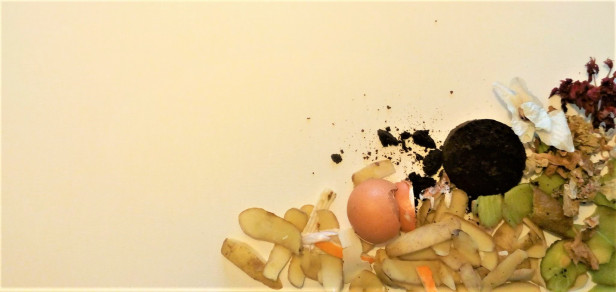Circular Organic Waste in Amsterdam is a thesis project carried out in a collaboration between the UvA Faculty of Science, the Amsterdam Business School and the Van ’t Hoff Institute for Molecular Sciences (Research Priority Area Sustainable Chemistry)The aim of the project is to investigate on the potential of separate organic waste collection and treatment in improving the circularity of Amsterdam. Amsterdam wants to become a sustainable and circular city by 2050 and increase recycling to 65% of waste by 2020 (currently around 27%). In addition, in April 2018, the European Parliament has adopted the revised Waste Framework Directive which declares that all member states shall ensure that biowaste is separately collected by 2023. Therefore it is clear that the separate collection of organic waste represents both an opportunity for the city to get closer to its targets and a necessity.
Currently, organic waste is not separately collected and it is just incinerated with the residual waste. In this way, energy is produced but all the nutrients and organic matter are lost and so all the value. Other treatments, more specific for organic waste, could allow for the recycling of nutrients, the retention of the value and even the upcycling of some materials. However, the introduction of another waste stream separately collected raises organizational, logistic and transportation issues. Therefore, this research aims at analyzing various potential collection solutions that could minimize costs and environmental impact making feasible and convenient the separate collection of organic waste and different possible treatments for this waste stream.
The analysis will be based on interviews, case studies and literatures and will be performed from different perspectives in order to have a systemic vision. Parallelly also the city of Amsterdam and its different sub-environments will be analyzed in order to understand the specific needs, limitation and opportunities of each different area. Combining the results, the most successful case studies that fit best in the characteristics of the city will be selected and integrated in different sustainable business models.
The set of business models proposed will produce an overall strategy for the management of organic waste following the principles of sustainability and circular economy as much as possible.
At the same time, the research will be backed by a social analysis performed through a questionnaire in order to get data on the real perception about this issue among Amsterdam’s inhabitants. The questionnaire will also help to get data on what would be the best instruments to incentivise the separate collection of organic waste and what the biggest barriers to its realisation are.
You can access the questionnaire through this link:




